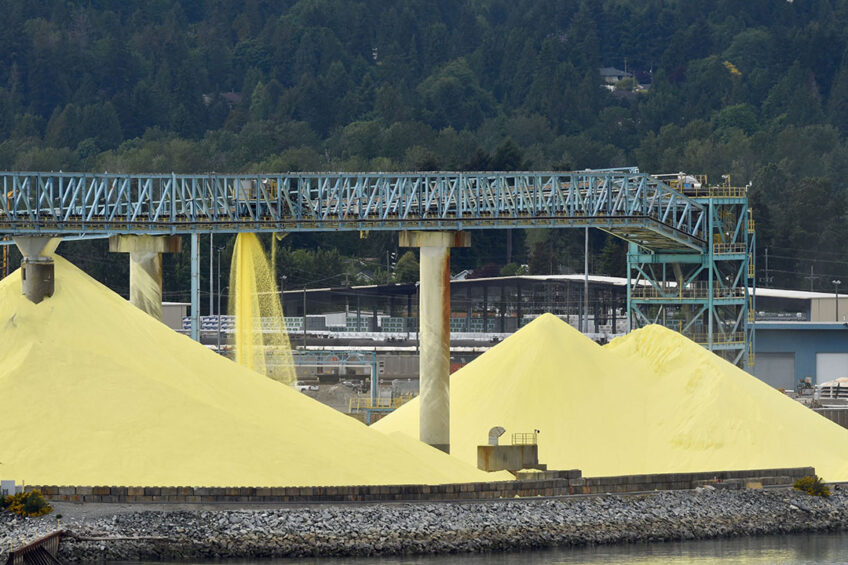Looming sulphur shortage as the world decarbonises

Global food security could be under threat and green technology stifled due a projected rise in demand of sulphuric acid, according to researchers.
The study, carried out by University College London and the Institute of British Geographers, highlights that global demand for sulphuric acid is set to rise significantly from 246m tonnes to 400 million tonnes by 2040, due to more intensive agriculture and the world moving away from fossil fuels.
The researchers claim that this will result in a shortfall in annual supply of between 100 and 320 million tonnes – between 40 and 130% of current supply – depending on how swiftly the globe decarbonises.
Sulphuric acid is seen as a vital part of modern manufacturing, and is required for the production of phosphorus fertilisers that help feed the world, as well as for extracting rare metals from ores, like cobalt and nickel, used in high-performance Li-ion batteries, essential to the rapidly required green economy transition.
Impact of decarbonisation on sulphur supply
At present, more than 80% of the global sulphur supply is in the form of sulphur waste from the desulphurisation of crude oil and natural gas that reduces the sulphur dioxide gas emissions that cause acid rain. However, decarbonisation of the global economy to deal with climate change will significantly reduce the production of fossil fuels – and subsequently the supply of sulphur.
Moving from waste product to direct mining
UCL study lead author Professor Mark Maslin, said: “Sulphur shortages have occurred before, but what makes this different is that the source of the element is shifting away from being a waste product of the fossil fuel industry. What we’re predicting is that as supplies of this cheap, plentiful, and easily accessible form of sulphur dry up, demand may be met by a massive increased in direct mining of elemental sulphur. This, by contrast, will be dirty, toxic, destructive and expensive.”
New methods needed of extracting sulphur
Prof Maslin said research was urgently needed to develop low-cost, low environmental impact methods of extracting large quantities of elemental sulphur in the Earth’s crust.
Co-author Dr Simon Day added: “Our concern is that the dwindling supply could lead to a transition period when green tech outbids the fertiliser industry for the limited more expensive sulphur supply, creating an issue with food production particularly in developing countries.”
To determine their findings, the researchers estimated 3 sulphuric acid demand scenarios from 2021 to 2040, based on historic and forecast demand, with annual growth rates ranging from 1.8% to 2.4%.
The authors also explored several ways that demand for sulphur could be reduced as part of the transition to post fossil fuel economies. These included:
The fertiliser industry including recycling phosphorus in wastewater
Increasing the recycling of lithium batteries
Using lower energy capacity/weight ratio batteries that require less sulphur







